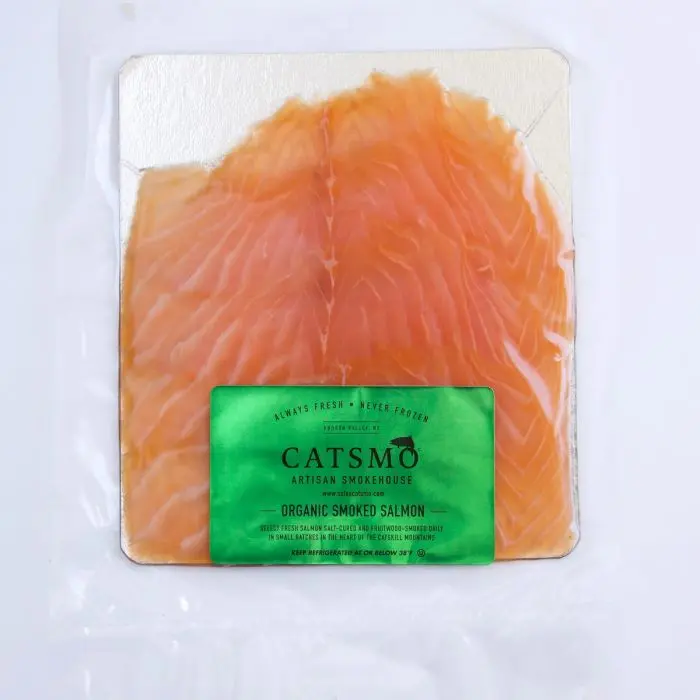Organic smoked salmon has become increasingly popular among health-conscious consumers looking for high-quality and sustainable seafood options. But what exactly sets organic salmon apart from regular salmon? Let's explore the key differences between these two types of salmon.
Organic Certification
One of the main differences between organic smoked salmon and regular salmon is the organic certification. Organic salmon is produced according to strict organic standards set by certifying bodies such as the Soil Association in the UK or the USDA in the United States. These standards ensure that the fish are raised in a natural and environmentally friendly manner, without the use of synthetic chemicals or antibiotics.
Organic salmon is sourced from farms that prioritize sustainability and the well-being of the fish, offering consumers a more ethical and environmentally conscious choice.
Feed and Diet
Diet plays a crucial role in the quality and nutritional value of salmon. Regular salmon is often fed with a diet that includes fishmeal made from wild-caught fish. This can contribute to overfishing and the depletion of marine resources. On the other hand, organic salmon is fed with certified organic feed that is free from genetically modified organisms (GMOs) and contains sustainable fishmeal alternatives.
By choosing organic smoked salmon, consumers support a more sustainable and responsible approach to fish farming, reducing the impact on wild fish populations.
Antibiotic Use
In conventional salmon farming, antibiotics are commonly used to prevent diseases and promote growth. However, excessive use of antibiotics can lead to antibiotic resistance and environmental contamination. Organic salmon farms, on the other hand, prioritize disease prevention through natural methods and strict biosecurity measures, reducing the need for antibiotic use.
By opting for organic smoked salmon, consumers can enjoy a healthier and antibiotic-free product, minimizing the risks associated with antibiotic resistance.
Q: Is organic smoked salmon more expensive than regular smoked salmon?
A: Yes, organic smoked salmon tends to be more expensive than regular smoked salmon. This is due to the higher production costs associated with organic farming practices and the use of certified organic feed.

Q: Does organic smoked salmon taste different from regular smoked salmon?
A: The taste of organic smoked salmon can vary depending on the specific brand and smoking process. However, many consumers find that organic smoked salmon has a cleaner and more delicate flavor compared to regular smoked salmon.
Q: Can I trust the organic label on smoked salmon products?
A: To ensure the authenticity of the organic label, look for certifications from recognized organic certifying bodies such as the Soil Association or the USDA. These certifications guarantee that the product meets strict organic standards.
In summary, organic smoked salmon offers several advantages over regular smoked salmon. From the organic certification and sustainable feed to the reduced antibiotic use, organic salmon provides consumers with a more ethical, environmentally friendly, and healthier choice. While it may come at a higher price, the benefits of choosing organic smoked salmon make it a worthwhile investment for those seeking a premium and sustainable seafood option.
If you want to know other articles similar to Organic vs regular salmon: key differences and benefits you can visit the Sustainable category.


Related Articles